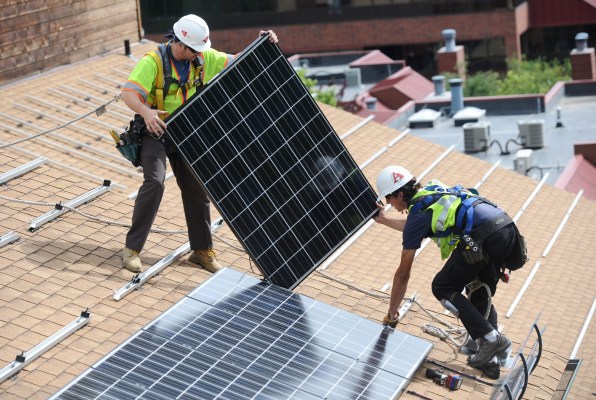How do you know when a market has matured?
Often, you can simply look at the usual metrics: revenue, market capitalization, customer numbers, margins, and the like. But there’s one relatively new measure that doesn’t get a ton of attention: Is there a Y Combinator–backed SaaS startup for a market?
If that’s the metric, then the market for solar installers is officially mature.
For years, solar installers have cobbled together project management workflows. For smaller companies, that often looked like a slew of spreadsheets. For larger ones, it meant hacking together something from Salesforce or Oracle to fit the unique needs of a solar installation. Altogether, they worked: The industry is still booming, as evidenced by the fact that jobs for solar installers are expected to grow 22% this year.
But though they work, these systems aren’t ideal.
Coperniq’s pitch is that its SaaS will help solar installers manage their projects better than existing solutions while also giving the companies an eye toward long-term recurring revenue. The startup was included in Y Combinator’s Winter 2023 batch, filling out part of the accelerator’s drive to invest in more climate tech startups. Since graduating, the company has been on track to increase annual recurring revenue fivefold this year, co-founder and CEO Abdullah Al-Zandani told TechCrunch+.
“We’re in the healthy spot,” he said.
A few things inspired Al-Zandani to start Coperniq along with Max Kazakov. Most recently, Al-Zandani worked for a solar company helping to manage sales and operations, which was where he realized there was a need for a better solution.
His journey with solar, however, started years earlier, when he was a teenager in Yemen. An ongoing civil war meant the electric grid was unstable at best, and Al-Zandani said he and his family went without power or water many times. “I had to think about something,” he said.
Solar was that something, so he built a makeshift system using some solar panels, an inverter, and some old car batteries, electrocuting himself twice in the process.
“It started working. For a 15-year-old, that was really magical, right? And I was like, wow, oil and energy, countries fight for this. This will replace it. But how can I do this a little bit safer and on scale?”
Coding Coperniq is definitely safer than wiring car batteries to an inverter. Al-Zandani and Kazakov made their first sale during their senior-year finals week at UC Berkeley, and they’ve been working to build the company since.
The startup’s solution picks up where solar project proposal software leaves off. Coperniq integrates with Aurora, a widely used proposal software, and helps installers manage the project until the solar array is operating and connected to the grid. Coperniq also helps with customer communication, letting them know the status of their installation at any given time.
The startup recently closed a $4 million seed round led by Initialized Capital, with participation from Y Combinator, TechCrunch+ has exclusively learned. The company didn’t disclose a valuation or its revenue, but Al-Zandani said that its ARR increased sixfold last year.
Rather than bill on a per-seat basis, Coperniq charges per watt, a common metric used in the solar world. Currently, prices range from $180 per residential project (8–10 kilowatts) to $500 per commercial project (0.5–1.5 megawatts), Al-Zandani said, though sales are made in batches, not individually. The startup looks at how many installations a solar company made in the last year and sells them enough to cover that plus 10%.
Part of the seed funding will go toward creating an API that can talk to various pieces of solar hardware so that solar companies can either diagnose problems before customers notice or recommend additional panels if a customer’s electricity use increases. Developing such long-term relationships would be a significant shift for the industry, which typically doesn’t have much customer contact after the panels are turned on.
The move will also give Coperniq another way to add recurring revenue to its bottom line. After all, the SaaS revolution was less about software than it was figuring out how to charge for it. SaaS took over the software world (and arguably the venture capital world) because it generated recurring revenue in a way that was divorced from major project releases. It helped companies predict their software expenses, too, in a way that was more closely aligned with their cash flows.
Because of that predictability for investors and customers alike, SaaS has spread from enterprise IT operations to law firms, doctors’ offices, restaurants, debt collection and more. Now it’s come for solar installers.
The fact that there’s an investor-friendly SaaS for installers is a sign that solar has truly become a safe and predictable market that’s not going anywhere anytime soon.
